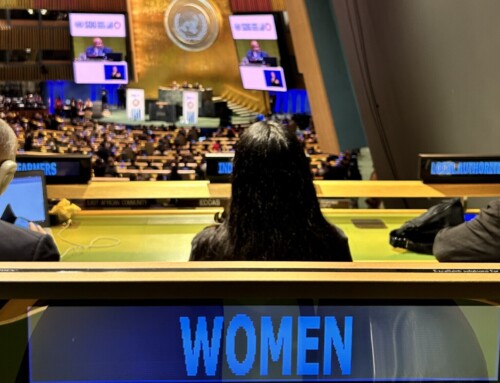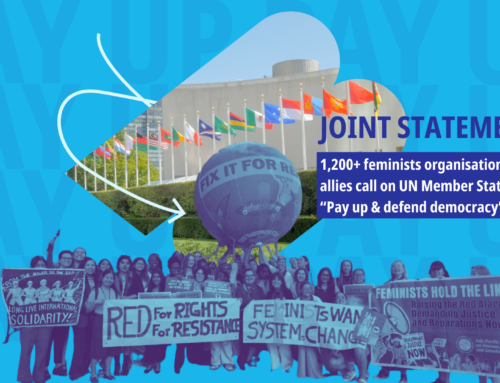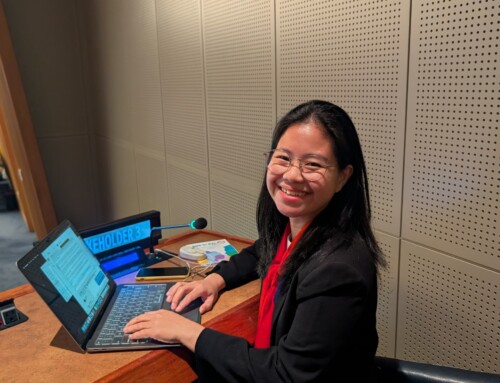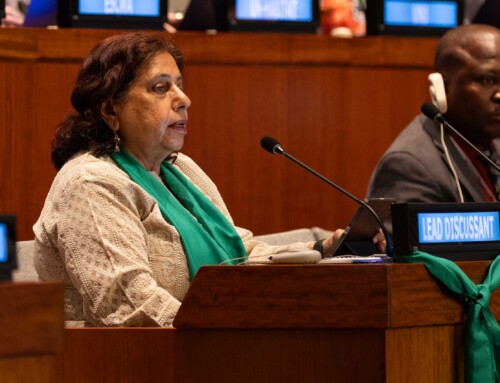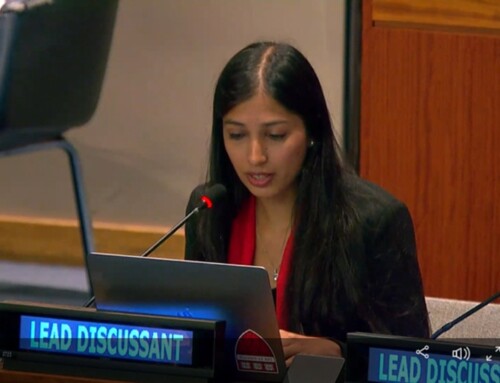The Women’s Major Group signed on to a letter, by the global debt justice movement, to call for the Paris Club Secretariat and Paris Club Member States’ support for Argentina’s proposal regarding the restructuring of its debt towards the Paris Club.
The final letter is here in Spanish: https://www.latindadd.org/2020/05/19/argentina-club-paris-deuda/
You may find the English translation below:
We write to you today, as representatives of the global debt justice movement, to call for your support for Argentina’s proposal regarding the restructuring of its debt towards the Paris Club.
Argentina is struggling with recession and a mounting debt crisis. The country has been on selective default for a few months already and is battling to avoid a broader default. It has been trying to find a workable path with creditors, notably its private creditors, by proposing a comprehensive and consistent debt restructuring process. However, this has resulted in little success to date. On top of this already complicated situation, Argentina is now facing the economic consequences of the global Covid-19 pandemic.
Supporting debt restructuring in Argentina is imperative in order to address the profound social and humanitarian crisis affecting vast parts of the country’s population. Before the Covid-19 outbreak, the poverty rate was already as high as 38 percent. According to the Social Debt Observatory in the Catholic University of Argentina (UCA), the combination of the lockdown and the pre-existing financial crisis in the country has provoked an increase in the poverty rate that could have already reached 45 percent of the population. As food insecurity increases, threatening the survival of many, a decision from creditors to ease the economic recession becomes urgent and necessary.
Argentina’s public debt had already been deemed unsustainable prior to the Covid-19 crisis. With interest payments having doubled as a share of government revenue, the cost of refinancing has become excessively high. This has been consistently stated by Argentinian authorities, as well as by the IMF, since February, at which time the Fund made clear a substantial debt restructuring would be necessary to restore sustainability, and this should include private creditors. In response to this situation, the Government of Argentina has developed a debt sustainability strategy approved by its parliament as a priority policy to implement.
Compared to its private and multilateral debt, Argentina’s outstanding bilateral debt towards the Paris Club countries does not represent a significant part of its overall debt. However, Argentina is not in a position to meet the USD 2.1 billion debt service payment to Paris Club creditors which was due on the fifth of May. Until May 2019, Argentina had been paying down its bilateral debt as scheduled since it was renegotiated in 2014 by the Club. This was despite the prohibitive terms of the agreement which did not allow for any reduction of the principal and imposed a very high 9 percent penalty interest rate.
Argentina is now addressing the Paris Club with a reasonable and vital request for a debt restructuring, including rescheduling and extension of its repayment period and a reduction of its interest rates. We believe this proposal sets the minimum the Paris Club should offer to Argentina, considering the extraordinary circumstances. It is the responsibility, not only of the Argentinean Government but also of its creditors, to grant fairer conditions that would allow the population to tackle this economic and humanitarian crisis. A fair decision within the Club could also help pave the way for a broader restructuring by its private and multilateral creditors. Indeed, the Club has an opportunity to set a precedent and provide important leverage, by requesting comparable treatment from Argentina’s private creditors. A successful outcome depends upon the participation and fair burden-sharing by all creditors.
Should Paris Club creditors reject Argentina’s request, buy-in from the private creditor could prove harder to foster and would impact negatively on overall negotiations. The humanitarian impacts of such a decision would be devastating, and the possibility for Paris Club members’ to obtain a better deal in the future would be unlikely to increase.
In this unique and exceptional context in history and, as the Argentinian case painfully illustrates, the absence of – and the need for – a comprehensive international legal framework for sovereign debt restructuring is more obvious than ever. This shortcoming in the current international financial architecture, which should be urgently addressed by the international community, should not in the meantime prevent distressed economies from protecting their people and providing for economic recovery during the crisis.
Argentina’s request to the Paris Club offers a historic opportunity for its members to show that they are committed and able to resolve a sovereign debt crisis in an orderly, efficient and sustainable manner. Offering Argentina a fair solution that would help them deal with the grave humanitarian crisis that the country faces would also demonstrate the commitment of Paris Club creditors to international human rights law – and their extraterritorial obligations thereunder – and to the realisation of the SDGs. A positive agreement from the Paris Club in this case would set a precedent for Argentina, and more generally for the global financial architecture.

